Watch Video: "The U.S.‐China Confrontations and the Future of the International Order"
On March 3, 2019, representatives from ten think tanks from major countries around the world gathered in Japan for the public forum of the Tokyo Conference, a dialogue on the diverse array of issues facing the world today.
Yasushi Kudo, president of The Genron NPO, welcomed the panelists and audience to the public forum. The aim of the public forum was to allow the panelists to exchange opinions on the U.S.-China confrontation and the future of the international order, and the first of the two public sessions focused on the potential results of a worsening trade war between the U.S. and China. During the first session, panelists were invited to give their opinions on the future of the free-trade system and multilateralism, and Kudo invited the two keynote speakers to open the first session by offering some insight into the issues being faced.

First to speak was Clyde Prestowitz, President of the Economic Strategy Institute, who opened by emphasizing that the situation is "not just about the U.S. and China." According to Prestowitz, after China was brought into the WTO, it was expected to evolve and follow the rules in place.
However, after twelve years of repeated talks between the U.S. and China, the only changes that occurred were unexpected ones. "After 2012," Prestowitz explained. "It seemed that the role of the government increased. This was accompanied by a buildup of Chinese military power and military equipment, expansion of occupied islands in the South China Sea, Air Information Zones, and more."
The situation won't be resolved through more purchases of "soy beans and natural gas" by China, he said. "It's about free versus managed markets." Prestowitz pointed out that the current discussion is framed as the result of U.S. aggression because of President Donald Trump's tariffs, but looking more deeply into the background suggests to Prestowitz that China is equally complicit.
In addition, the currently available methods of resolution are inadequate, Prestowitz explained, with the WTO unable to deal with cyber security, IP theft, and other issues, while the IMF is unable to deal with floating exchange rates, rate management, and countries intervening in markets.
Prestowitz also noted that term "decoupling" has come to be used more often when discussing the U.S.-China relationship.
"Many prominent scholars and officials have said that we can't just have decoupling," he said. "China is already too big, and our corporations are already too invested in China. And yet, we do have decoupling...already in the cyber world, there is decoupling. And the decoupling was not at the behest of the United States or Japan or the E.U. It was declared by China."
Prestowitz said that this should be kept in mind considering that the current discussion often focuses on placing the U.S. as the more aggressive party due to Trump's call for tariffs, whereas the background suggests that China has also played a role in causing the current situation.
"The U.S.-China discussion has to be seen in the context of a larger requirement for reform of the rules-based global order," Prestowitz concluded.

Masatsugu Asakawa is Vice Minister of Finance for International Affairs for Japan, and during his keynote, he referred to the surprise China felt when the U.S. tariffs were announced after an agreement had been reached in summer of 2018.
"They agreed to bilateral talks on the trade deficit, cyber espionage, and other topics. Then the tariffs were announced, with March 1 being the deadline for when the tariffs would come into effect. That deadline was postponed," Asakawa explained.
In addition to the tariff issues, Asakawa believes that various aspects of the WTO need reform. This would allow issues such as the U.S.-China trade imbalance to be discussed "in the context of the global community." Asakawa also noted that even if Chinese imports to the U.S. are subject to tariffs and reduced in volume, there will be a subsequent increase in imports from other countries. So, on the macro level, the trade imbalance will remain the same, just with a greater number of countries on the other side of the scale.
"International trade is the engine that drives the world economy," Asakawa said. "When there is a problem, the negative impact is felt globally." If tariffs are increased, Asakawa fears that the burden will be on U.S. consumers, which could affect the U.S. economy.
"We have to solve the U.S.-China friction," he continued. "And bilateral negotiation is not enough. By joining the WTO, China was expected to align to the international standard. We cannot abandon that goal. We need to encourage Chinese engagement in the multilateral system."

After the keynote speeches, Kudo moderated the discussion session. Five members of the panel gave detailed comments, while the remaining members were asked to respond.
James Lindsay, Senior Vice President at the Council on Foreign Relations in the U.S. offered a few observations, the first of which was that the "confrontation has been a long time coming."
He reiterated Prestowitz's point about the world's expectations of China after it was accepted into the WTO, and noted that most Americans thought it was a win-win solution.
"China would change and become a 'responsible stakeholder', and it would accept the U.S.-created world order," he said. "But perhaps it was naïve. No one anticipated the speed of China's economic rise." According to Lindsay, that rise resulted not in a "responsible stakeholder" in China, but rather a "great power" that was exploiting and ignoring the rules of the order.
"In many ways, the question that is really worth asking is not 'Why is the United States reacting?' but 'Why in fact it took so long for the United States to react to Chinese behavior?'"
Lindsay also believes that the current confrontation is about more than Trump. While Trump's approach to the issue has been criticized, "there is a consensus that Chinese behavior needs to be challenged, and if the U.S. doesn't challenge it, things will get worse."
Finally, Lindsay pointed out that the issues in the current U.S.-China confrontation involve more than just the U.S.
"They affect all of its like-minded friends and allies," he said before concluding. "Given that President Trump has had a tendency to act unilaterally, and to ignore the offers of help of America's friends and allies,,,I hope that America's friends and allies will continue to take the important steps to put pressure on China to adhere to common and mutually beneficial rules of the road."

Alice Ekman is Head of China Research at the French Institute of International Relations, and she sees at least three non-trade aspects about which the two countries have diverging positions.
The first is strategic, with China and the U.S. having "completely different positions on the Taiwan Strait, the Korean Peninsula, and the South China Sea." The second is China's dissatisfaction with the Bretton Woods system. Chinese institutions consider the current framework to be a product of the West, which makes it unacceptable for China. Finally, there is a large ideological gap in terms of domestic policy, particularly under Xi Jinping's leadership.
Ekman posed a few questions that need to be answered before a solution can be found. Will China and the U.S. build bridges between their non-standardized infrastructures? Can the U.S. accept in practical terms the overlap arising from China welcoming U.S. allies into its own security alliance? In addition, will Chinese companies offer development assistance to countries that refuse to also introduce the Chinese political model? Ekman sees the issues arising from the above questions resulting in further global bipolarization.
Providing one Southeast Asian perspective was Keng Yong Ong, Executive Deputy Chairman of the S. Rajaratnam School of International Studies in Singapore.
Ong explained that Singapore is focused on trade and investment, and that the rest of Southeast Asia shares that focus. The issue is that stability and predictability are required for progress, and rules are needed to help the countries of Southeast Asia "advance to the next level, develop our respective societies, and share good governance for all our peoples." This is why they look at the friction between the U.S. and China as unfavorable. "We hope it will not lead to confrontation," Ong said. "We think the existing order is beneficial to everyone. But it is under a lot of pressure, and we are working to stabilize it. Whatever happens, maintenance or reform, we need rules, structure, understanding, and a consensus to improve."
Ong explained that Southeast Asia is conscious of the problems that can arise from having two different systems. "Most Southeast Asian countries see having competitive systems as bad for the world order," he said.

Canada's Rohinton Medhora, President of the Centre for International Governance Innovation began by praising China's accomplishment since its entry into the WTO of bringing more people out of poverty that any other country in history.
"China did what any responsible state would do. It used the rules of the game to improve the lot of its people," Medhora said. He then posed a rhetorical question: if the real goal is to bring the world together, would people rather have China periodically do irritating things while in the system, or do we want to isolate China and see what happens then?
"We should be looking to improve those rules of the game," he stressed. "But this is not the time to cast China out." Medhora stated that the areas that are causing the most friction - how to deal with climate change, intellectual property and new technologies - are "exactly the issues for which we do not have institutions, because these problems didn't exist."
Medhora feels that people "are talking about the rules of the game as if they existed, when in fact, for the most part, we should be talking about creating them in the first place."
Medhora also stated that he doesn't "buy the rhetoric" coming from the U.S. regarding its claims about the Scandinavia countries, Canada, and China having interventionist policies while the U.S. does not.
"That's not true," he said before concluding that, "All countries do it. The U.S. just calls it something different. We need a system where all countries have a stake in the global order."
Masahiro Kawai is with the University of Tokyo's Graduate School of Policy, and he agreed with the previous speakers who described the U.S.-China tension as being about more than just trade.
"In the next ten years, the Chinese economy will surpass the U.S. economy in nominal GDP terms," Kawai explained. "Manufacturing is already far beyond the U.S., and the Chinese tech sector is also growing rapidly. It's just a matter of time before they catch up and surpass the U.S. there too."
Kawai believes that the U.S. is well aware of that future, and that this is the reason for the friction between the two countries. Under one-party rule, China's managed economy is another problem, and they have made little progress in terms of the introduction of democracy or in human rights issues. Kawai suggested that "perhaps a different form of engagement is warranted" to change China.
These can be partly achieved through bilateral talks, but Kawai believes that regional and multilateral pressure are also a key part of the solution. In addition, he mentioned that some thinkers in China have begun proposing reform, and that it would be beneficial to "liaise with them to change China from the inside."
At this point, Kudo asked the panel where President Trump's interests lie. Is he interested in fixing the U.S. relationship with China, or is he simply trying to fix the trade deficit? Is his final objective structural reform in China or the isolation of China?
"I think Trump hasn't made up his mind," Lindsay said. "Pounding the table has created an opportunity, but he has no goal. We talk about rules-based order, but this is not an order that Trump has ever accepted. I think that Trump's analysis is wrong, but it guides how he operates."
Regarding decoupling, Asakawa noted that China has become an integral part of the Bretton Woods framework and couldn't be separated even were they to create their own framework. "More problematic is the risk of Chinese defaulting on foreign loans, and the potential economic slowdown and drop in the value of the Renminbi," he said. "The Chinese economy could potentially collapse, and if it did, it would set off a global crisis. China is a part of the system, so issues have to resolved smoothly."
Volker Perthes is Director of the German Institute for International Security Affairs (SWP), and he pointed out that before we assume that a conflict exists, we must first understand the situation, and thereby overcome it.
"Is it about trade, ideology, security or geopolitics?" Perthes asked. "It may be about everything, but we should establish priority. Where should we start? If it is security, we should speak about arms control. If trade, it's about reform of the WTO, and if ideology, we should make our democracy resilient."

Sunjoy Joshi, Chairman of India's Observer Research Foundation is confident that the trade war will be resolved, but that the deeper conflict, that of who will dominate the technological sector, is going to continue.
"Who will rule the telecommunication networks of the future? That will determine the contours of this next war, which will continue beyond the next election," he said.
"The larger strategic battle will continue," he said, and countries like India do not want to be forced to choose which system they must follow.
"If we are forced to choose, someone will end up disappointed," he said. "Because we will always choose what is best for ourselves."
Leslie Vinjamuri of Chatman House in the UK described how many people disagree with the idea of the liberal international order because, "They feel it doesn't serve their needs. The rules-based order needs to be flexible enough to deal with that, or we end up in the position we are in the UK now, and possibly the U.S.."
In addition, Vinjamuri thinks that people have tried to coopt a framework they are comfortable with, i.e. that of the Cold War, in order to understand the current state of global affairs. However, she thinks the comparison isn't entirely appropriate, due to the idea of competing ideologies.
"There are differences between how the two countries deal with the state and society," she said. "But I think the term 'ideology' is potentially very dangerous."
Carlos Ivan Simonsen Leal is President of the Getulio Vargas Foundation in Brazil, and he pointed to the digital sector to show that the competition between countries is not necessarily irrational. The extension of Moore's Law predicts that computer speeds double every 18 months, and for the last 60 years, the rule has held true in one form or another.
"The U.S. had a head start," he said. "It is less now, but it still has an advantage."
However, Heisenberg's uncertainty principle places a physical limit on the validity of Moore's Law, and some experts say that it will be invalid around 2025, according to Simonsen Leal. "Whoever wins there will have the advantage," he said.
Ettore Greco, Executive Vice President of Italy's Institute of International Affairs offered a warning about the limitations of economic links, pointing to history as an example.
"They may prevent decoupling," Greco said. "But at a certain point, if the rivalry deepens, as history has taught us, political tension can prevail."
Prestowitz wrapped up the first session of the public forum, noting that although China is exerting its influence in various ways by using its economic position to "direct the political or philosophical flow," some Asian nations are reluctant to make a choice one way or another.
"Ultimately," he said. "It comes down to the question of what are our values, and how do we defend them?"

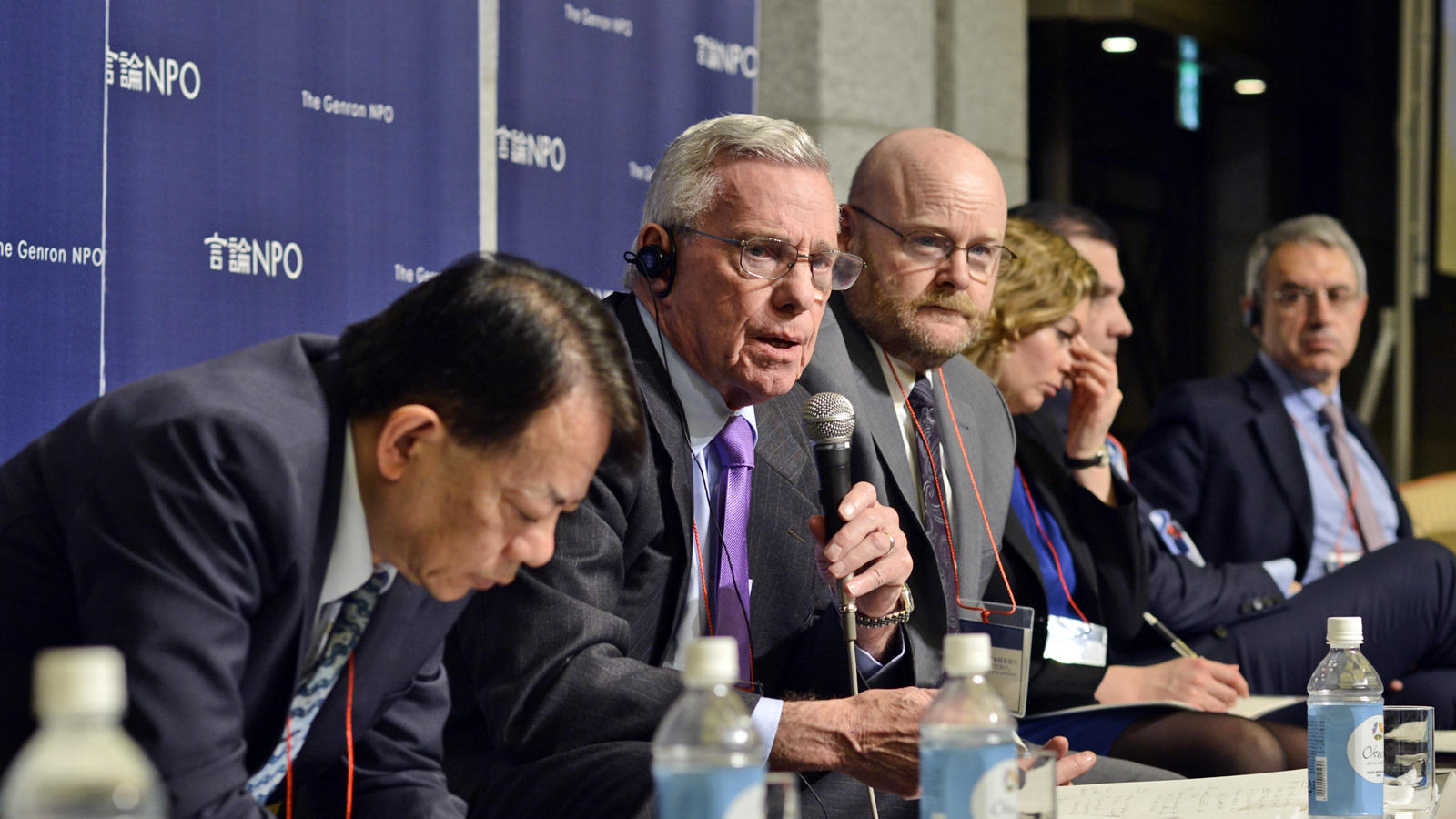
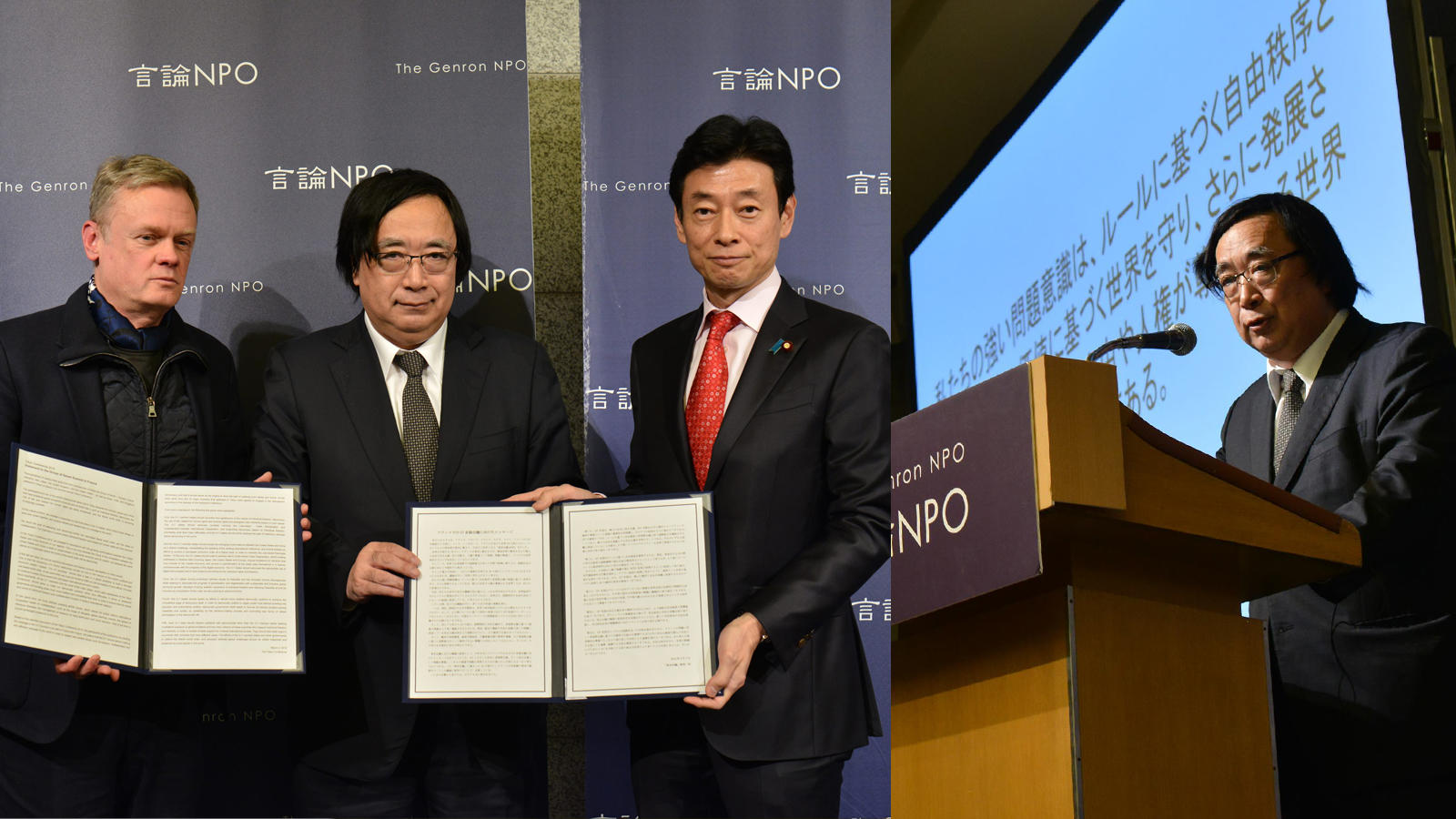
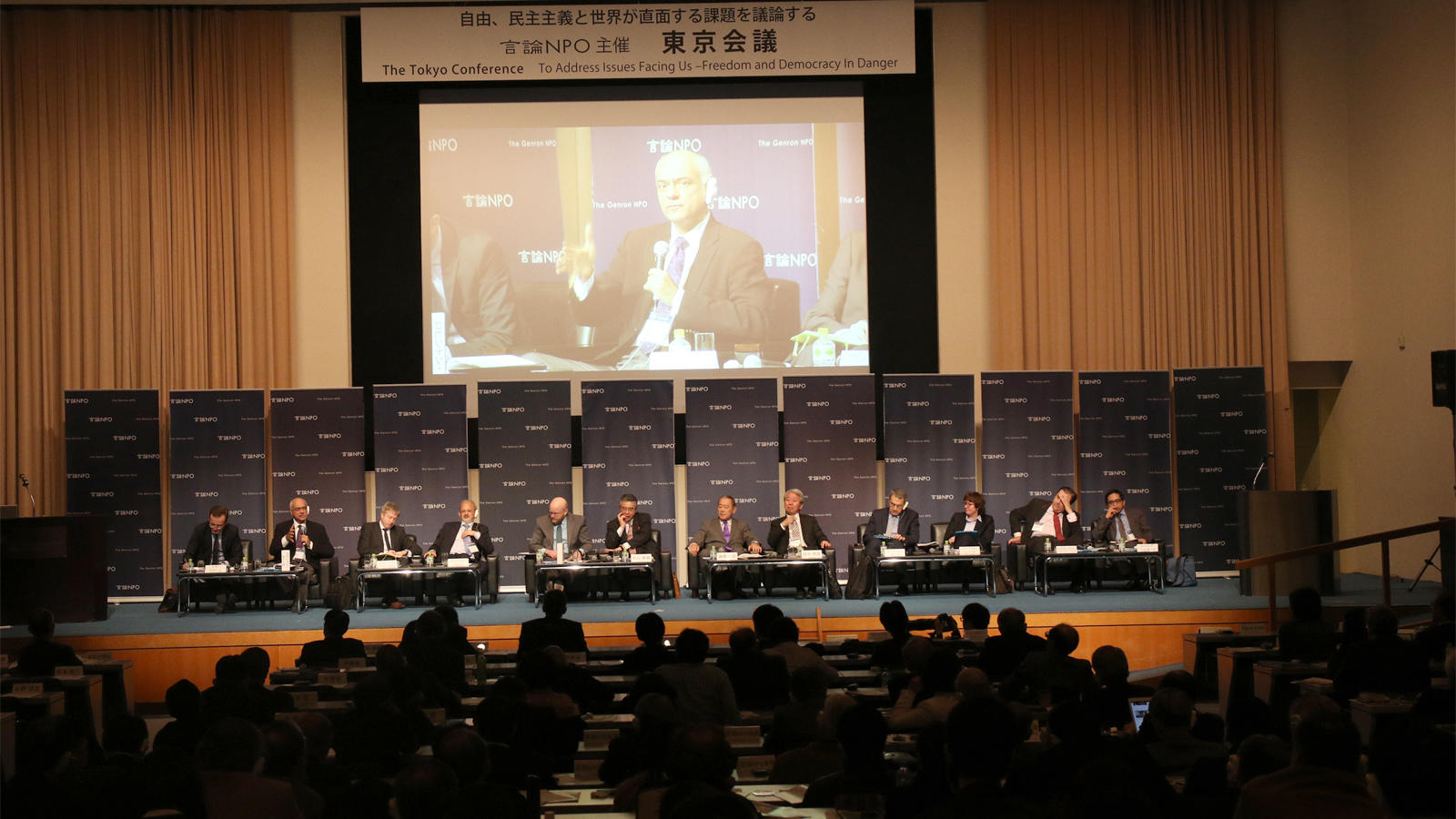
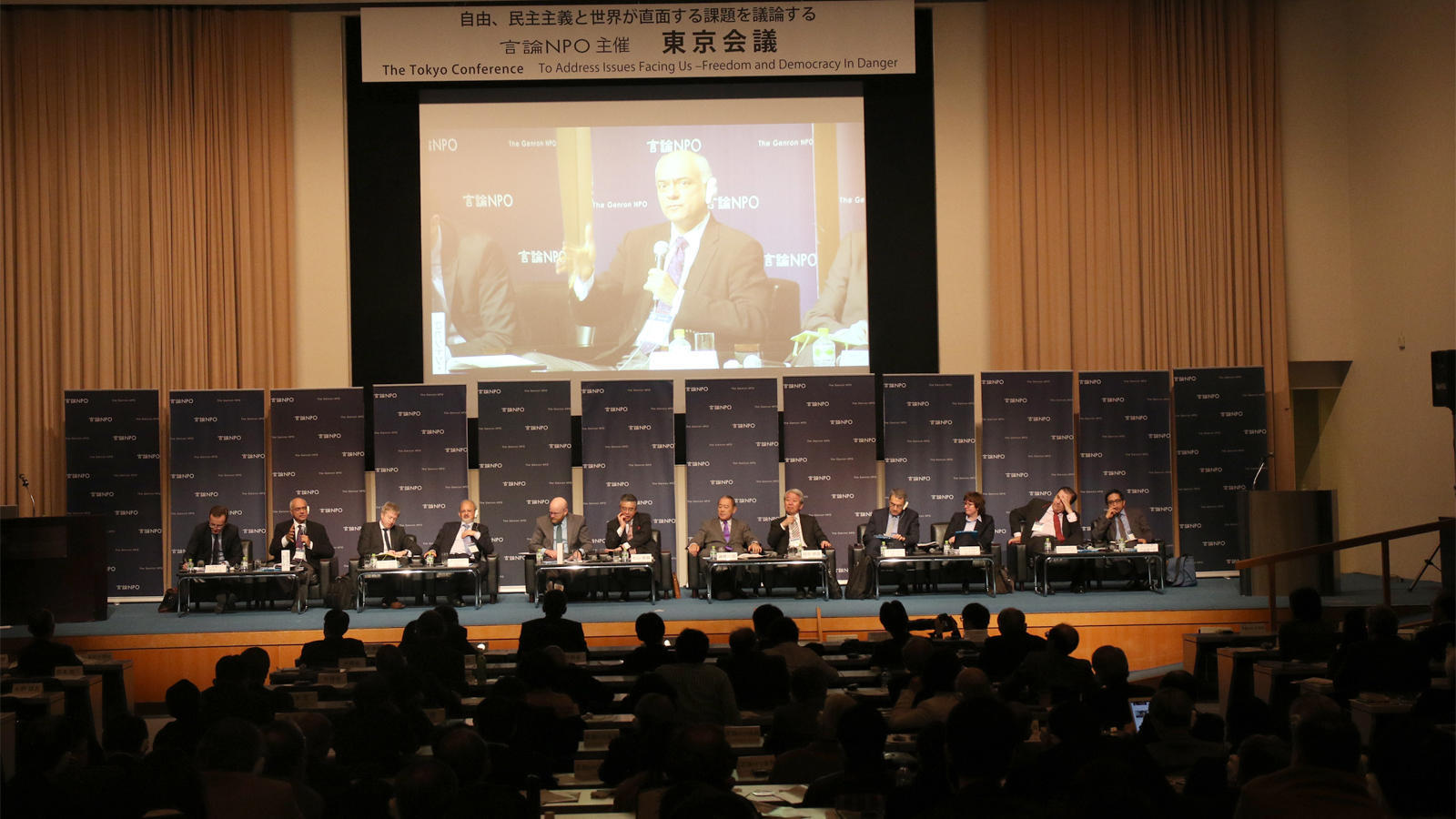
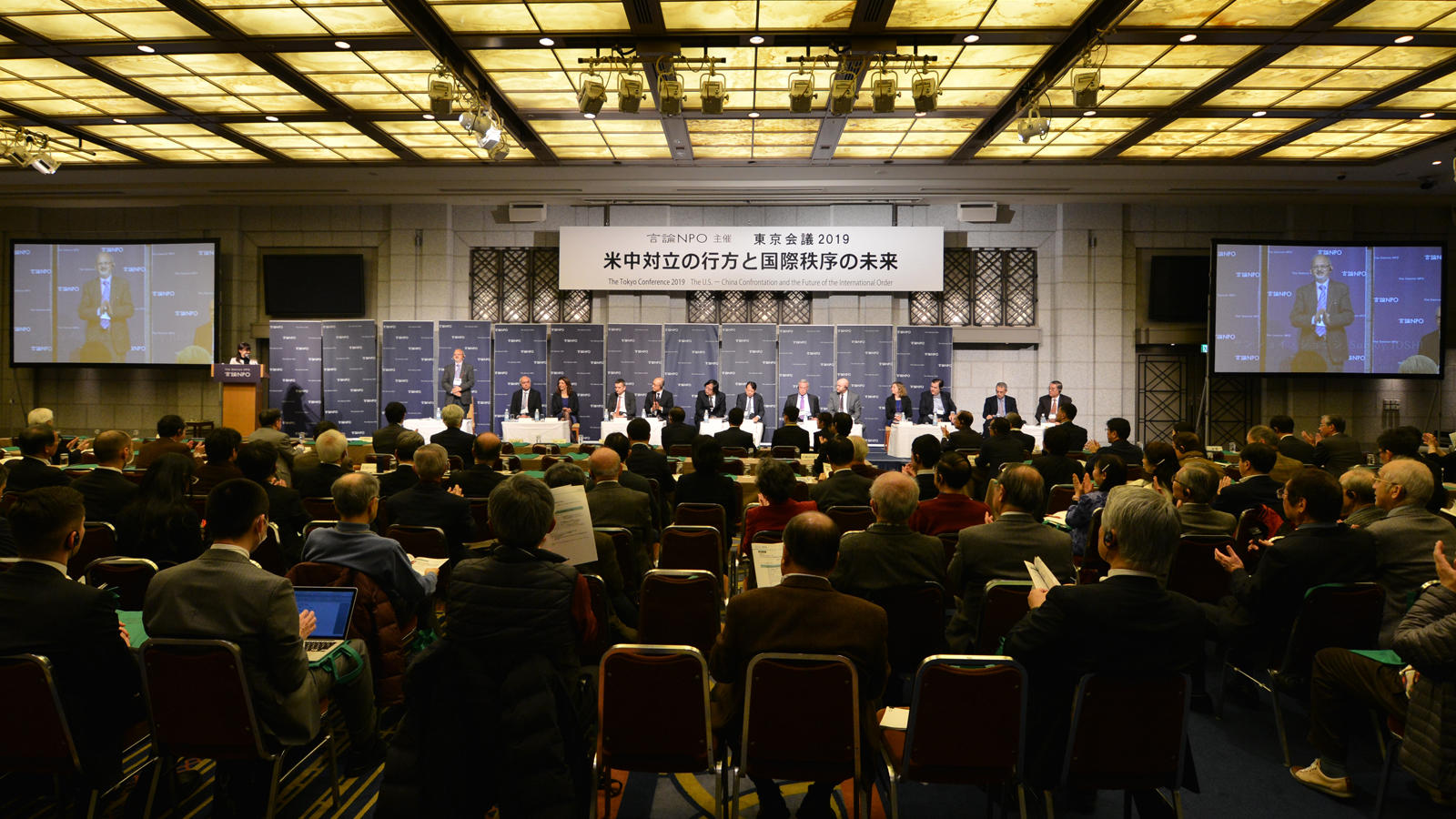
Post a comment